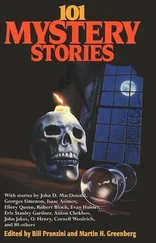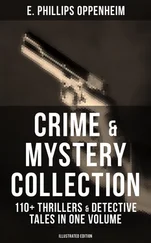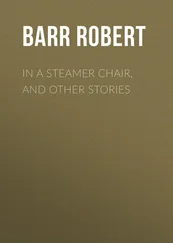'Show the gentleman in,' and he did so.
To my astonishment there entered a young man, quite correctly dressed in the dark frock-coat, faultless waistcoat and trousers that proclaimed a Bond Street tailor. When he spoke his voice and language were those of a gentleman.
'Monsieur Valmont?' he inquired.
'At your service,' I replied, bowing and waving my hand as Armand placed a chair for him, and withdrew.
'I am a barrister with chambers in the Temple,' began Mr. Gibbes, 'and for some days a matter has been troubling me about which I have now come to seek your advice, your name having been suggested by a friend in whom I confided.'
'Am I acquainted with him?' I asked.
'I think not,' replied Mr. Gibbes; 'he also is a barrister with chambers in the same building as my own. Lionel Dacre is his name.'
'I never heard of him.'
'Very likely not. Nevertheless, he recommended you as a man who could keep his own counsel, and if you take up this case I desire the utmost secrecy preserved, whatever may be the outcome.'
I bowed, but made no protestation. Secrecy is a matter of course with me.
The Englishman paused for a few moments as if he expected fervent assurances; then went on with no trace of disappointment on his countenance at not receiving them.
'On the night of the twenty-third, I gave a little dinner to six friends of mine in my own rooms. I may say that so far as I am aware they are all gentlemen of unimpeachable character. On the night of the dinner I was detained later than I expected at a reception, and in driving to the Temple was still further delayed by a block of traffic in Piccadilly, so that when I arrived at my chambers there was barely time for me to dress and receive my guests. My man Johnson had everything laid out ready for me in my dressing-room, and as I passed through to it I hurriedly flung off the coat I was wearing and carelessly left it hanging over the back of a chair in the dining-room, where neither Johnson nor myself noticed it until my attention was called to it after the dinner was over, and everyone rather jolly with wine.
'This coat contains an inside pocket. Usually any frock-coat I wear at an afternoon reception has not an inside pocket, but I had been rather on the rush all day.
'My father is a manufacturer whose name may be familiar to you, and I am on the directors' board of his company. On this occasion I took a cab from the city to the reception I spoke of, and had not time to go and change at my rooms. The reception was a somewhat bohemian affair, extremely interesting, of course, but not too particular as to costume, so I went as I was. In this inside pocket rested a thin package, composed of two pieces of cardboard, and between them rested five twenty-pound Bank of England notes, folded lengthwise, held in place by an elastic rubber band. I had thrown the coat across the chair-back in such a way that the inside pocket was exposed, leaving the ends of the notes plainly recognisable.
Over the coffee and cigars one of my guests laughingly called attention to what he termed my vulgar display of wealth, and Johnson, in some confusion at having neglected to put away the coat, now picked it up, and took it to the reception-room where the wraps of my guests lay about promiscuously. He should, of course, have hung it up in my wardrobe, but he said afterwards he thought it belonged to the guest who had spoken. You see, Johnson was in my dressing-room when I threw my coat on the chair in the corner while making my way thither, and I suppose he had not noticed the coat in the hurry of arriving guests, otherwise he would have put it where it belonged. After everybody had gone Johnson came to me and said the coat was there, but the package was missing, nor has any trace of it been found since that night.'
'The dinner was fetched in from outside, I suppose?'
'Yes.'
'How many waiters served it?'
'Two. They are men who have often been in my employ on similar occasions, but, apart from that, they had left my chambers before the incident of the coat happened.'
'Neither of them went into the reception-room, I take it?'
'No. I am certain that not even suspicion can attach to either of the waiters.'
'Your man Johnson—?'
'Has been with me for years. He could easily have stolen much more than the hundred pounds if he had wished to do so, but I have never known him to take a penny that did not belong to him.'
'Will you favour me with the names of your guests, Mr. Gibbes?'
'Viscount Stern sat at my right hand, and at my left Lord Templemere; Sir John Sanclere next to him, and Angus McKeller next to Sanclere. After Viscount Stern was Lionel Dacre, and at his right, Vincent Innis.'
On a sheet of paper I had written the names of the guests, and noted their places at the table.
'Which guest drew your attention to the money?'
'Lionel Dacre.'
'Is there a window looking out from the reception-room?'
'Two of them.'
'Were they fastened on the night of the dinner party?'
'I could not be sure; very likely Johnson would know. You are hinting at the possibility of a thief coming in through a reception-room window while we were somewhat noisy over our wine. I think such a solution highly improbable. My rooms are on the third floor, and a thief would scarcely venture to make an entrance when he could not but know there was a company being entertained. Besides this, the coat was there less than an hour, and it appears to me that whoever stole those notes knew where they were.'
'That seems reasonable,' I had to admit. 'Have you spoken to any one of your loss?'.
'To no one but Dacre, who recommended me to see you. Oh, yes, and to Johnson, of course.'
I could not help noting that this was the fourth or fifth time Dacre's name had come up during our conversation.
'What of Dacre?' I asked.
'Oh, well, you see, he occupies chambers in the same building on the ground floor. He is a very good fellow, and we are by way of being firm friends. Then it was he who had called attention to the money, so I thought he should know the sequel.'
'How did he take your news?'
'Now that you call attention to the fact, he seemed slightly troubled. I should like to say, however, that you must not be misled by that. Lionel Dacre could no more steal than he could lie.'
'Did he show any surprise when you mentioned the theft?'
Bentham Gibbes paused a moment before replying, knitting his brows in thought.
'No,' he said at last; 'and, come to think of it, it appeared as if he had been expecting my announcement.'
'Doesn't that strike you as rather strange, Mr. Gibbes?'
'Really my mind is in such a whirl, I don't know what to think. But it's perfectly absurd to suspect Dacre. If you knew the man you would understand what I mean. He comes of an excellent family, and he is—oh! he is Lionel Dacre, and when you have said that you have made any suspicion absurd.'
'I suppose you caused the rooms to be thoroughly searched. The packet didn't drop out and remain unnoticed in some corner?'
'No; Johnson and myself examined every inch of the premises.'
'Have you the numbers of the notes?'
'Yes; I got them from the Bank next morning. Payment was stopped, and so far not one of the five has been presented. Of course, one or more may have been cashed at some shop, but none have been offered to any of the banks.'
'A twenty-pound note is not accepted without scrutiny, so the chances are the thief may find some difficulty in disposing of them.'
'As I told you, I don't mind the loss of the money at all. It is the uncertainty, the uneasiness caused by the incident which troubles me. You will comprehend how little I care about the notes when I say that if you are good enough to interest yourself in this case, I shall be disappointed if your fee does not exceed the amount I have lost.'
Читать дальше












